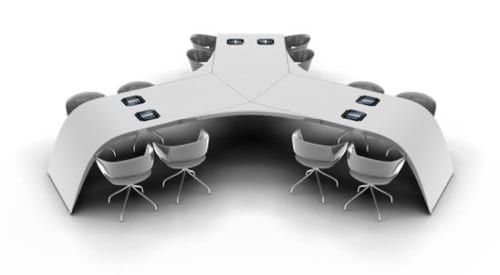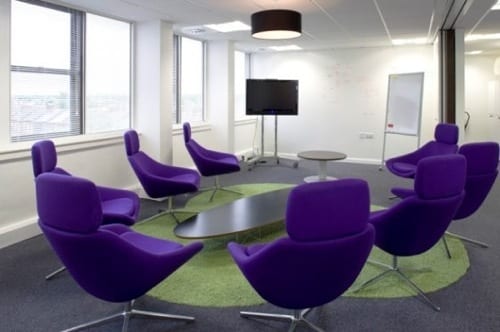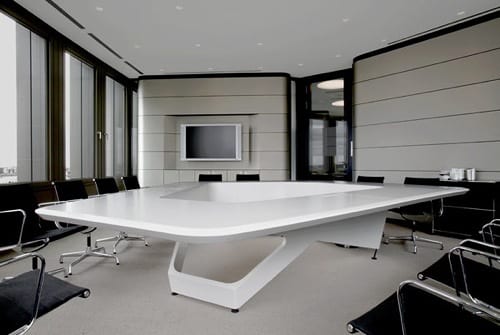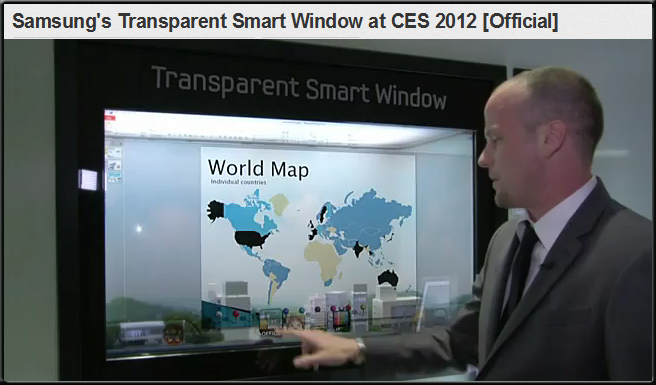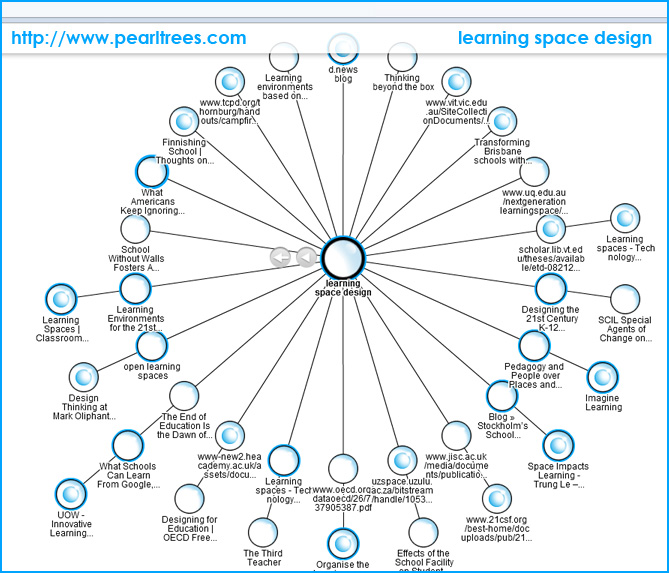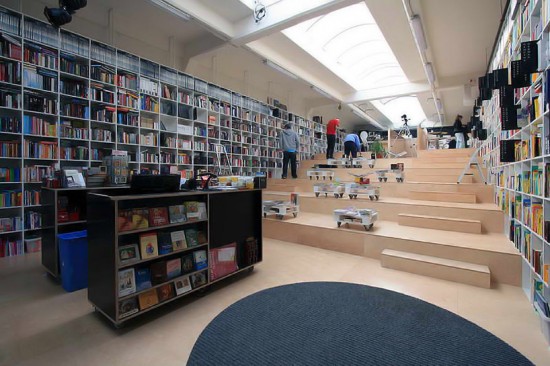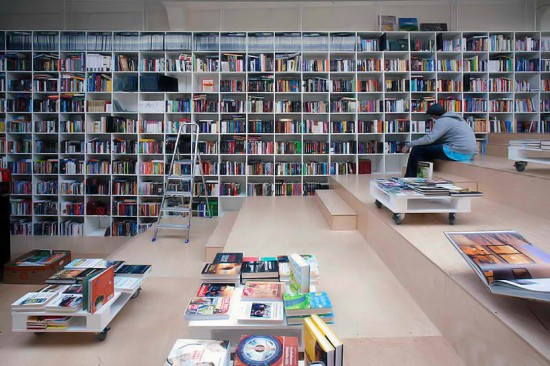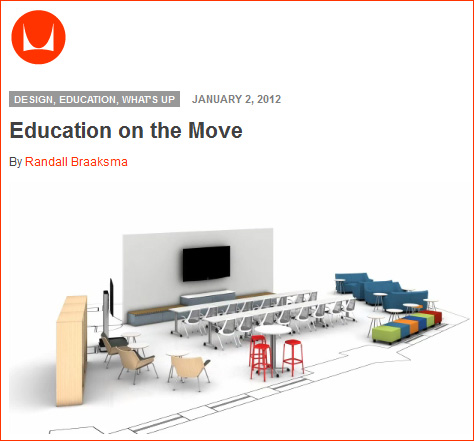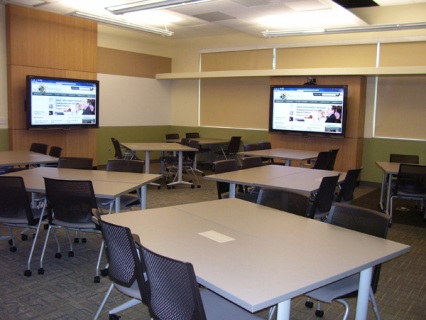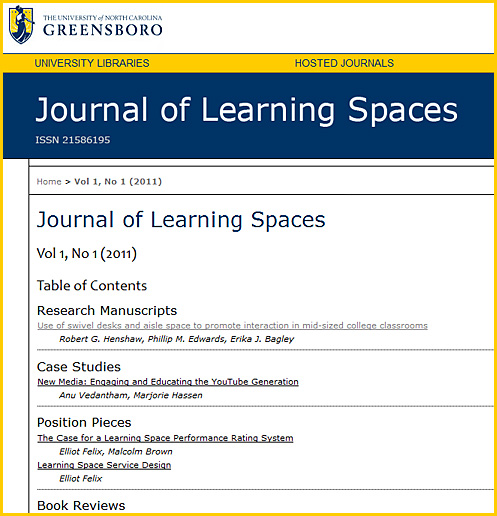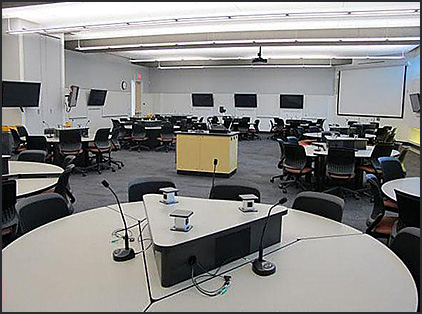The case for a learning space performance rating system — from oit.colorado.edu
Excerpt:
Citation: Elliot Felix and Malcolm Brown. (2011) “The Case for a Learning Space Performance Rating System,” Journal of Learning Spaces 1, no. 1. http://libjournal.uncg.edu/ojs/index.php/jls/article/view/287.
Summary: Calls for a rating system for educational spaces. This system would be like the LEEDs system for green buildings. Sketches out the elements such a system would need.
Key Points:
Also see:
Curl up in these 10 cool reading chairs — from furniturefashion.com
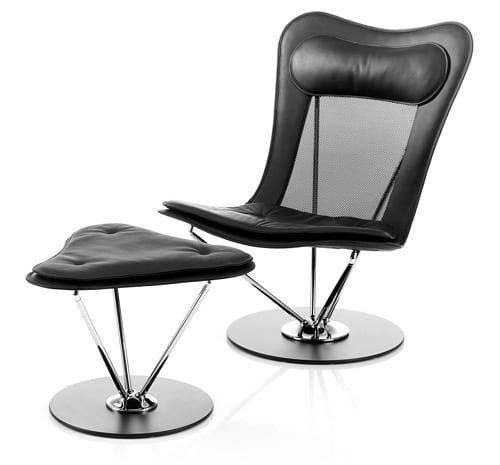
Modern Chair for Lammhults by Andreas Störiko
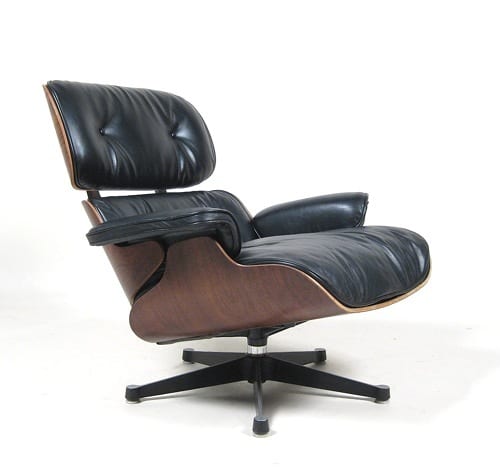
.The Classic Lounger by Charles & Ray Eames
.
.
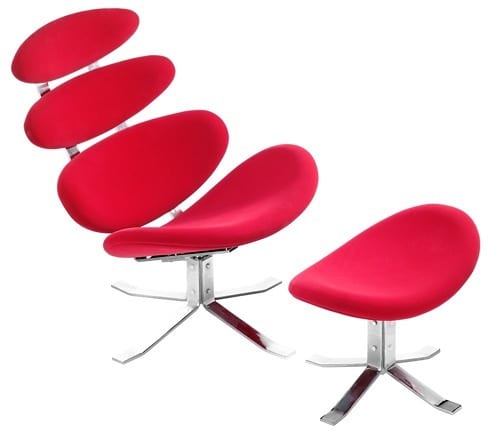
The Petal Chair by Zuo Modern
Ideum Releases MT65 Presenter Multitouch Wall Display — from Ideum.com by Chad Person

.
From DSC:
What if this were a Connected/Smart TV in a Smart Classroom?
Plural Bookshop — from Fubiz.net
Excerpt:
Installée à Bratislava en Slovaquie, voici cette construction imaginée par Plural et TotalStudio pour un établissement doté à la fois d’un café et d’une librairie. Une structure en escalier et une large bibliothèque occupant l’ensemble de espace. Plus d’image dans la suite de l’article.
.
The Future Classroom has a large reconfigurable space divided into five ‘zones’ plus an interactive classroom.
.
Background
The original concept of Future Classroom Lab is based on the REAL centre created by the RM Education, a leading provider of ICT software, infrastructure and services to the educational sector in the UK. Along with RM, key industry partners supporting the Future Classroom Lab include: Acer, DYMO/ Mimio, Fourier, Microsoft, Panasonic, Planet PC, PolyVision, Promethean and SMART Technologies.
About European Schoolnet – www.europeanschoolnet.org
European Schoolnet is a network of 30 Ministries of Education from across the European member states, leading educational innovation at European level. As a major international think tank, European Schoolnet operates key European services in education on behalf of the European Commission, member Ministries of Education and industry partners.
Also related:
The Cole Hall “Collaboratory” classroom
has 6 separate learning pods, each seating 8 students.
(Rob Winner – rwinner@shawmedia.com)
.
Quoting from that piece:
“We are at a watershed moment in education design,” says Susan Whitmer in a conversation with Nicholas Jackson of The Atlantic. “The convergence of knowledge and circumstances provide us with the opportunity to revolutionize the built environment for all of education.”
Stockholm’s school without classrooms — interesting piece from architizer.com
.
Children have wild imaginations. Take Max from Maurice Sendak’s illustrated classic Where the Wild Things Are, whose mischievous tantrums cause his room to sprout into a lush, inhabited forest. In a similar experience of my own, I can recall a particular elementary school gym class, in which the gym was transformed into the perilous domain of a sword-wielding ‘gorilla’—played by my gym teacher. The masked predator hid behind colossal trees of rolled blue gymnastic mats and tangled cargo net vines before springing out to prey on us hysterical, spritely youth.

[All photos © Kim Wendt and Rosan Bosch]
.
Addendum on 1/12/12:
- The Pedagogy of Play and the Role of Technology in Learning — from pbs.org/mediashift by Aran Levasseur
6 ingredients for the 21st century classroom — from CampusTechnology.com by Bridget McCrea
.
Saint Leo University’s 21st century classroom
From DSC:
Note the chairs and tables are on wheels, for easily re-configuring the room. Note the use of visuals via the monitors. What I’d like to see in rooms (like the one above) are methods and/or devices whereby students at table #4 (for example) can “play” their project to a particular monitor and set of speakers.
Also see:
The Library as a Digital Learning Space — from The Journal by
Designing for learning spaces –– from Gráinne Conole (and Matthew Riddle from La Trobe University)
Also see:
- A ludic (playful) learning space promotes deep learning — from Thomas Groenewald
Active Learning Classrooms (ALC’s) at University of Minnesota — from Educause
.
.
.
Implications and Recommendations
- Where local resources allow, administrators might consider refitting older learning spaces along the lines of the ALCs to improve student learning outcomes and increase student satisfaction.
- Instructors teaching in an ALC-style classroom should be aware that the space’s de-centered nature can make traditional, expository teaching techniques difficult. They might wish to incorporate more active learning techniques and approaches into their repertoires.
- The beneficial impact of aligning pedagogy with the learning space indicates that faculty development programs designed to support the redesign of courses being taught in ALC-type spaces deserve continued or increased institutional support.
Further research is needed into the connections among learning spaces, pedagogical approaches, and student learning outcomes. In particular, future research should investigate the mechanisms underlying the positive effects of space and aligned pedagogy that our studies have found. Furthermore, as ALC-type learning environments become more common, it will be possible to conduct longitudinal studies of the impact of taking multiple classes in new learning spaces on broad strategic outcomes such as student retention, persistence, and failure rates.









